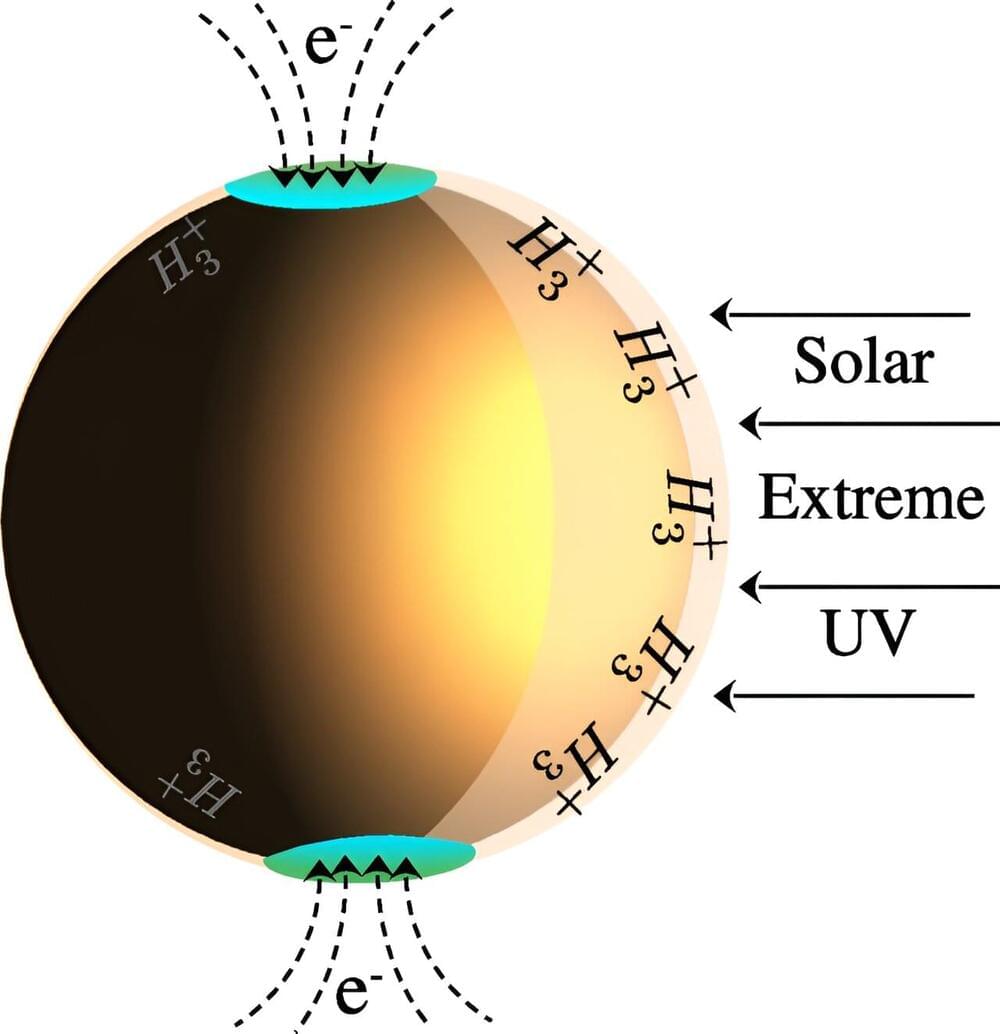A pair of astrophysicists with Princeton University and the SLAC National Accelerator Laboratory found possible evidence of dark matter particles colliding. In their study, published in Physical Review Letters, Carlos Blanco and Rebecca Leane conducted measurements of Jupiter’s equatorial region at night to minimize auroral influences.
Since it was first proposed back in the 1930s, dark matter has been at the forefront of physics research, though it has yet to be directly detected. Still, most in the field believe it makes up roughly 70% to 80% of all matter in the universe. It is believed to exist because it is the only explanation for odd gravitational effects observed in galaxy motion and the movement of stars.
Researchers posit that it might be possible to detect dark matter indirectly by identifying the heat or light emitted when particles of dark matter collide and destroy each other. In this new study, the researchers found what they believe may be such an instance—light in Jupiter’s dark-side outer atmosphere.
